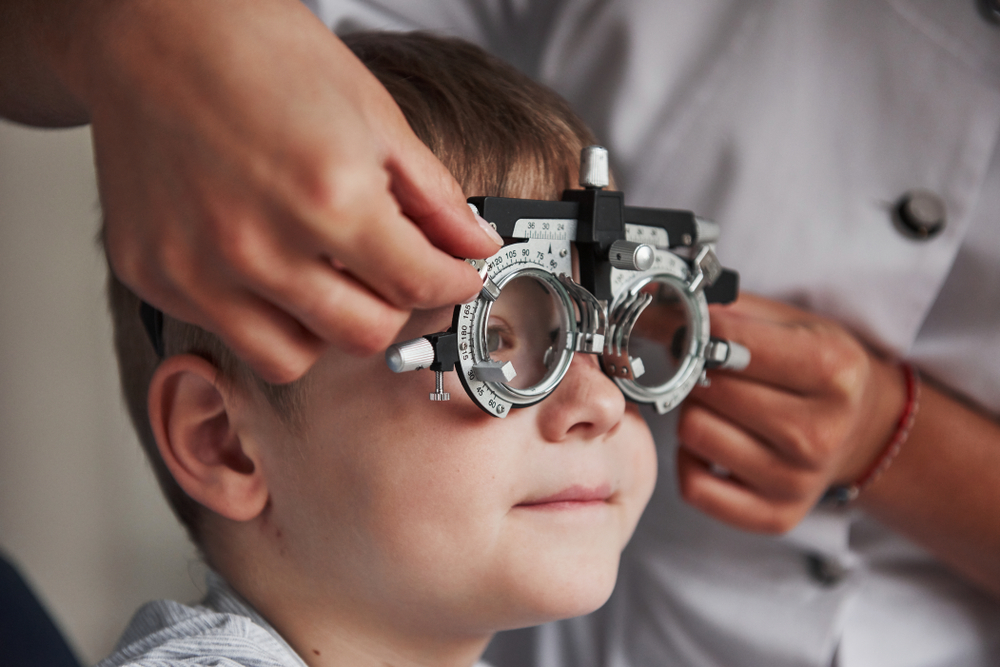
When a child struggles in school, parents and teachers often assume the issue is a learning disability. While this is sometimes the case, vision problems can also be the root cause of academic difficulties. Many children with undiagnosed vision issues exhibit symptoms similar to dyslexia, ADHD, or other learning disorders, leading to misdiagnosis and ineffective interventions.
The Link Between Vision and Learning
Vision is more than just seeing clearly. While a standard eye exam assesses visual acuity—how well a child can see at a distance—it does not evaluate how efficiently the eyes work together. Many academic struggles stem from functional vision problems, which impact a child's ability to process and interpret visual information.
Some common vision-related issues that can interfere with learning include:
Convergence Insufficiency: Difficulty keeping the eyes aligned when reading, causing words to appear blurry or doubled.
Tracking Problems: Trouble moving the eyes smoothly from word to word, making reading slow and frustrating.
Focusing Difficulties: Inability to shift focus between near and far objects, leading to headaches and fatigue.
Visual Processing Disorders: Challenges with interpreting and understanding what is seen, affecting comprehension and memory.
Without proper intervention, these vision issues can make reading, writing, and completing schoolwork overwhelming for children, potentially leading to a misdiagnosis of a learning disability.
Why a Functional Vision Exam Is Essential
A functional vision exam goes beyond a standard eye test to assess how well a child's eyes work together. This comprehensive evaluation identifies vision-related barriers to learning, ensuring that struggling students receive the right support.
At High5 Vision Development, our exams include:
Eye tracking assessments to determine if the eyes move smoothly across a page.
Convergence testing to evaluate how well the eyes work together when reading.
Focusing ability tests to identify difficulty shifting between distances.
Visual processing evaluations to measure how the brain interprets visual input.
If an issue is detected, vision therapy can help retrain the eyes and brain to work more efficiently, improving reading fluency, comprehension, and overall academic performance.
How Vision Therapy Can Help
Vision therapy is a customized program designed to improve the way the eyes and brain work together. Unlike prescription glasses, which simply correct refractive errors, vision therapy strengthens essential visual skills needed for reading, writing, and learning. Through guided exercises, children can enhance their eye tracking, focusing, convergence, and visual processing abilities, making it easier to read fluently, retain information, and stay engaged in schoolwork.
Over time, these targeted activities help retrain the visual system, reducing symptoms like eye strain, headaches, and difficulty concentrating. Our vision therapy programs are tailored to each child’s unique needs, providing a structured and effective approach to overcoming vision-related learning challenges.
Give Your Child the Tools They Need to Thrive
If your child is struggling in school despite their best efforts, an undiagnosed vision problem may be the cause. Misdiagnosing a vision issue as a learning disability can lead to unnecessary frustration and ineffective interventions. A functional vision exam at High5 Vision Development can provide the clarity needed to support your child's learning journey.
Don't let hidden vision problems stand in the way of your child’s success, contact High5 Vision Development to schedule a functional vision exam and give your child the tools they need to thrive. Visit our office in New Braunfels, Texas, or call (210) 507-7979 to book an appointment today.








